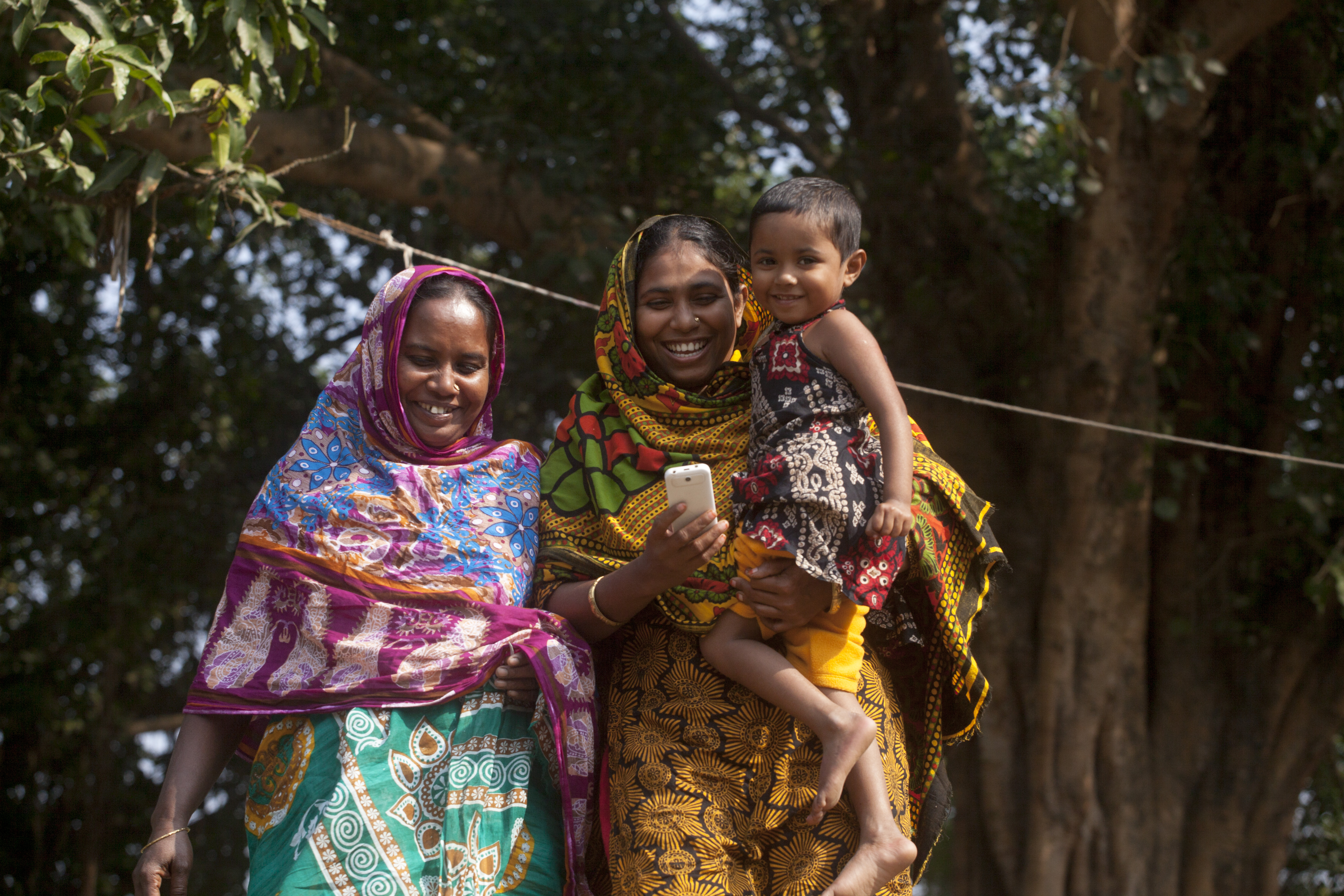Radical Social Innovations are selfishly driven by necessity. It was necessity that made BRAC graduate people out of poverty; it was necessity that made BRAC believe that the essence of millions of human lives could be preserved with a pinch of salt, a handful of sugar and clean well water.
At BRAC we say “Small is beautiful, but big is necessary”. Even the tiniest social problem when solved, at scale, creates social impact. So it is important to keep an eye out for those ‘weak signals’ and grab them at the first sight.
For 4 years now BRAC has been on the mission to include the 6 out of 10 people who are financially excluded in Bangladesh by testing different mobile money solutions on the field.
bKash is now the world’s 2nd largest mobile financial service provider (Only behind m-Pesa in Kenya) with Bangladesh being one of the fastest growing mobile money markets in the world.
We have reached a point where mobile money is probably still new, but no longer a shock for an average Bangladeshi on the street.
Laying the grounds was hard, very hard. We pulled off unrealistic targets and we were happy with what we did. But there was something we didn’t realise before.
Sustaining the clients was the real challenge. Drop-outs were rising; clients were losing accounts for poor quality of photocopies, or forgetting their pins; there were server errors that delayed transaction verification; many had no scope to use it often, so they didn’t use it at all. Even if it happened in random cases, the numbers at scale were a potential threat, the ‘Weak Signal’ we found that we needed to address.
Here is how we did it.
Tap Within, Use What You Already Have
You can’t move a stone without creating an ecosystem. A strong agent network is a prerequisite to making mobile money relevant in the clients’ everyday life.
BRAC realised intervening in the most unthought-of areas was difficult but necessary, since these areas showed lowest demand for mobile money, yet the highest need. We identified some early adopters. We picked our microfinance clients from the remote Char areas and asked them to become a bKash agent. They started on a market which even didn’t have electricity. From that, in one year, one of those agents received recognition from bKash for registering record number of clients for bKash overall.
When your partners can’t do something for you, do it for them
bKash has been our partner from the very beginning, bKash offers customer services for free. However, our clients were mostly rural, with diverse socio-economic, language and cultural backgrounds. Availing the customer service by calling bKash didn’t really work for them.
BRAC already had Customer Service Assistants (CSAs) in the Microfinance programme, who serve the microfinance clients, represent their community and understand them better. We trained our CSAs to become bKash Agents and designed special incentives for them. Now our clients can receive the service within their comfort zone!
The bonus: Since the CSAs are female, we now have a strong network of female bKash agents. Our clients now have more reasons to believe that mobile money is doable.
Design Support In Layers
Now that our CSAs had designated hours for discussing mobile money benefits and registering bKash accounts, we needed to make sure the CSAs had enough support for knowledge dissemination.
We created an app for our CSAs using which they could access bKash customer care on behalf of the clients, and solve their problems as an addition to the support. We arranged smart phones for them to use the app. We trained our CSAs (who were very new to the whole concept of touch-screens) on using the application and on the service delivery.
Bam! The registration rates multiplied and so did the frequency of use.
Synchronise: Make Sure It Starts Where It Ends
If we break down an ecosystem to an average reasonable view, we find some strong syncs that work simultaneously. To ensure it starts right where it ends, careful linkages need to be drawn among different stakeholders. Make sure your clients have meaningful reasons to continue using the mobile money, and the loop doesn’t die where it closes.
We designed multiple reasons for our clients to use mobile money. Our clients could submit monthly deposits, pay school tuitions, avail other microfinance products- all via mobile money.
Create Evidences That Talk:
As you go big, you need to go diverse, and in the process you need to have partners backing you up.
Also going big means adding more organisational layers to the process, mostly vertical, but few horizontal expansions within the organisation. We needed to involve more departments, we needed to share responsibilities and for that we needed to have something that would get them excited.
To convince your senior management, your staff as well as your partners, you need to create evidences that are interesting, relevant and cross functional.
We organised an in-house idea challenge to map out where we could integrate mobile money internally. We had amazing response from our staff. We recognised the winners. We implemented the best ideas. As a result now the BRAC Head Office can buy lunch tokens via mobile money. Entire BRAC receives transport allowance in their mobile wallets too.
We did more. We carried out an internal research to see if cash was actually more costly, the results weren’t dramatically positive, but that is what made them realistic and bold.
Bottom Line:
All these lessons are freshly baked from the BRAC Social Innovation Lab, just to make sure we don’t lose any of them when we get back to you, with our lessons after scale! To know more about our projects, you can visit our website, read our blog or email us at innovation@brac.net.
